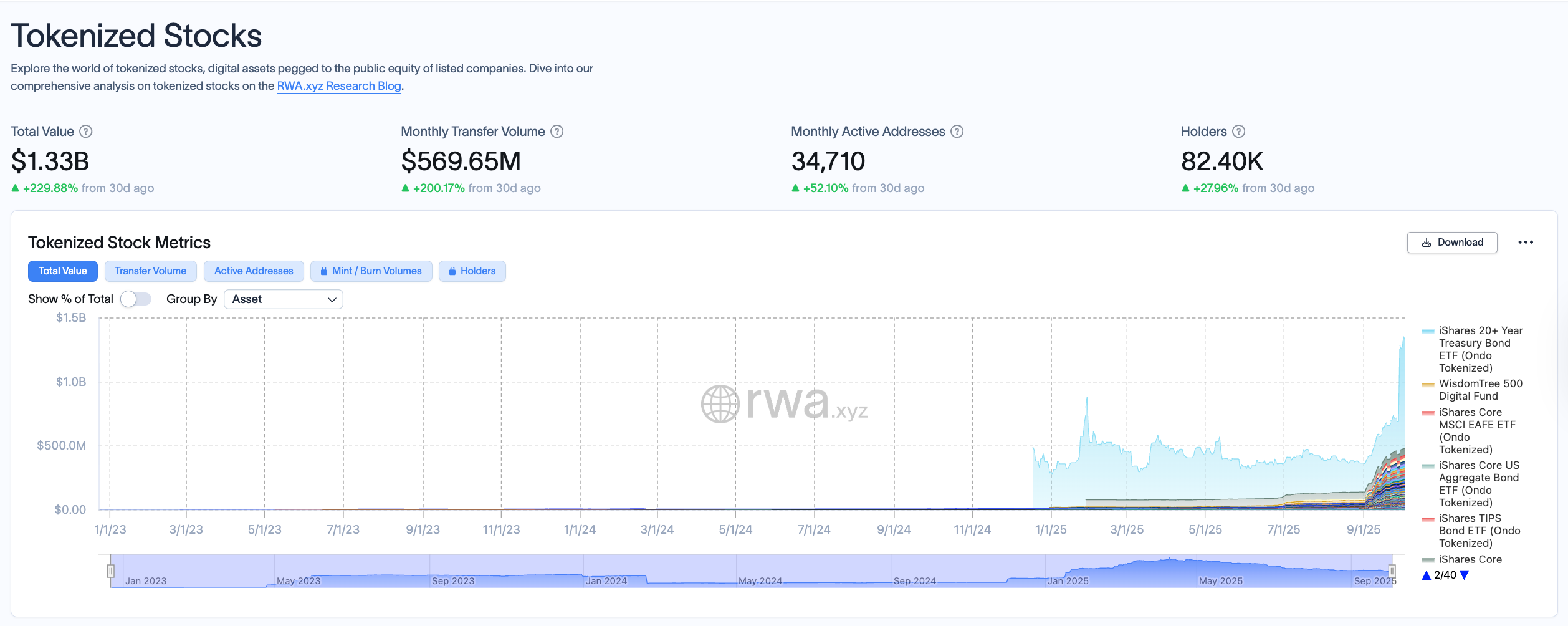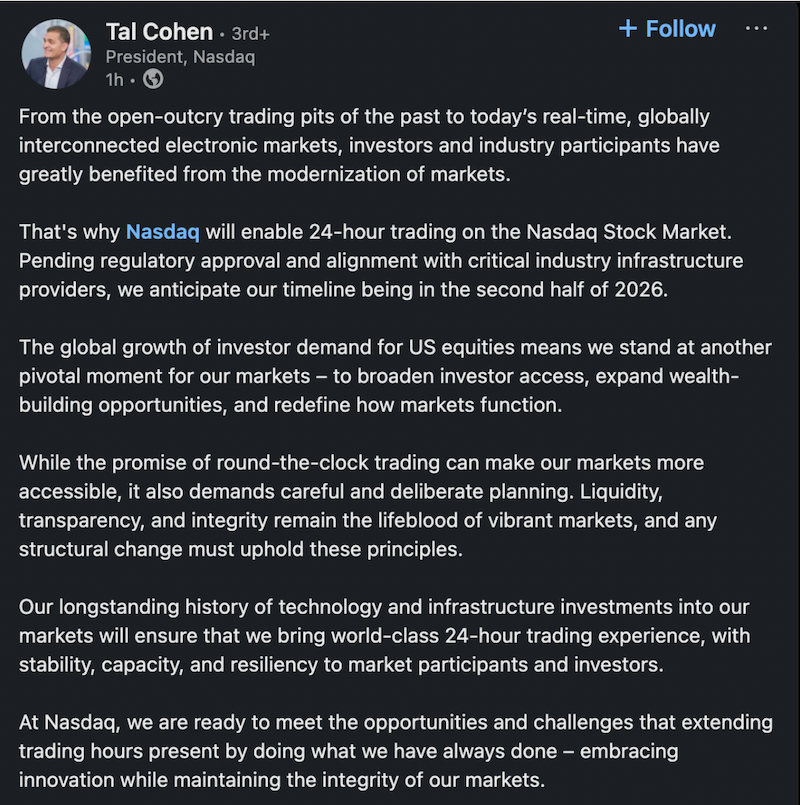Tokenized stocks magnify risk for crypto treasury companies by layering onchain volatility and smart-contract exposure on top of traditional equity risks. Tokenized DAT companies face 24/7 price swings, settlement complexity, and code/hack vulnerabilities that can quickly impact both token holders and ordinary shareholders.
-
Immediate risk: 24/7 onchain trading can trigger rapid runs on tokenized treasury shares.
-
Smart contract exploits and custody failures can affect both tokenized shares and the treasury’s crypto reserves.
-
Tokenized stocks reached over $1.3 billion in value, highlighting growing exposure (source: RWA.XYZ).
Meta description: Tokenized stocks risks rise for crypto treasuries—understand tokenized DAT company exposure and mitigation steps. Read expert analysis and key takeaways.
Crypto treasury companies are already capitalizing on highly volatile digital assets, and tokenizing company shares introduces new risks.
What are tokenized stocks risks for crypto treasury companies?
Tokenized stocks risks include amplified market volatility, smart-contract vulnerabilities, and regulatory uncertainty. Tokenized DAT companies that issue blockchain-based shares expose investors to both the treasury’s crypto exposure and the complexities of equity governance, increasing systemic and investor-level risk.
How do tokenized DAT companies increase investor and corporate risk?
Tokenized DAT companies create layered exposure: investors are exposed to the treasury’s crypto holdings and to the tokenized equity’s legal and governance complexity. Kadan Stadelmann, CTO of Komodo, notes that blockchains trade 24/7 while traditional markets do not, enabling price moves outside normal trading hours.
Sharp onchain price movements that occur during off-hours can trigger liquidity runs. That risk is heightened when a company issues both traditional shares and tokenized equivalents and cannot respond in time to rapid price shocks.

Tokenized stocks have crossed $1.3 billion in value. Source: RWA.XYZ
What technical and governance vulnerabilities matter most?
Smart contract bugs, custody hacks, and oracle manipulation directly threaten tokenized share value and the treasury’s underlying assets. Kanny Lee, CEO of SecondSwap, warns that tokenizing DAT equity “creates a synthetic on top of a synthetic,” exposing investors twice: to crypto volatility and to securities complexity.
Regulatory ambiguity increases legal risk. The US Securities and Exchange Commission is exploring blockchain-based stock trading, and traditional exchanges such as Nasdaq and NYSE are considering extended hours to compete with crypto markets. That policy evolution may change compliance demands for tokenized offerings.
How can investors and companies mitigate tokenization risk?
Adopt layered risk controls: comprehensive smart-contract audits, robust custody (multi-signature and cold storage), and clear corporate governance for tokenized shares.
- Require independent smart-contract audits and public audit reports.
- Maintain segregated custody reserves for tokenized assets versus operating crypto holdings.
- Implement circuit breakers and settlement limits for token trading during off-hours.
- Disclose legal status and investor rights clearly in token terms.
How does round-the-clock trading change market dynamics?
24/7 onchain trading reduces market friction but increases the probability of sudden, large price moves. Nasdaq has announced plans to expand trading hours, and SEC discussions on tokenized stocks point to a potential future of extended market accessibility. These changes demand faster corporate responses and clearer disclosure frameworks.

Nasdaq president Tal Cohen announces the push for 24 hour stock trading. Source: Tal Cohen
Comparing traditional shares and tokenized shares| Trading hours | Market hours, defined sessions | 24/7 onchain trading |
| Settlement | Cleared through exchanges/clearinghouses | Near-instant settlement on ledger |
| Primary risks | Market, governance, regulation | Market, smart-contract, custody, legal clarity |
Frequently Asked Questions
How do smart contract risks affect token holders?
Smart contract exploits can freeze tokens, drain funds, or alter token rules. Token holders may lose value if contracts are not audited and if custody practices are weak.
Will regulators allow 24/7 tokenized stock trading?
Regulatory frameworks are evolving. The US SEC has discussed tokenized stock models publicly, and exchanges are testing extended hours, but clear, enforceable rules for 24/7 token trading are still under development.
Key Takeaways
- Layered exposure: Tokenized DAT companies expose investors to both crypto volatility and equity complexity.
- Technical risk: Smart-contract and custody failures are primary attack vectors for tokenized shares.
- Mitigation: Audits, segregated custody, circuit breakers, and clear disclosures reduce systemic risk.
Conclusion
Tokenized stocks risks present a new frontier for corporate treasuries and investors. The blend of onchain trading, software risk, and regulatory uncertainty demands stronger governance and technical safeguards. Market participants should prioritize transparency and security as tokenization scales.



